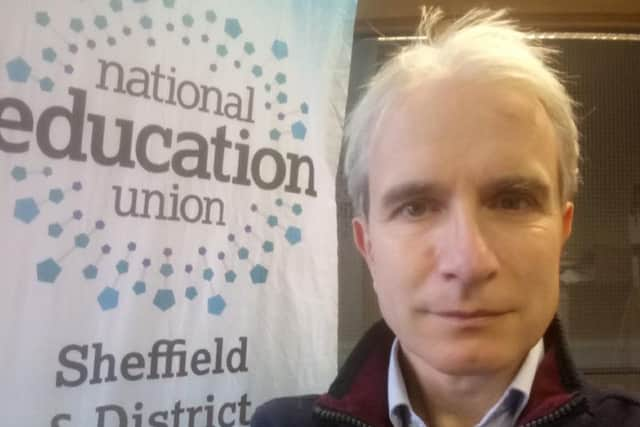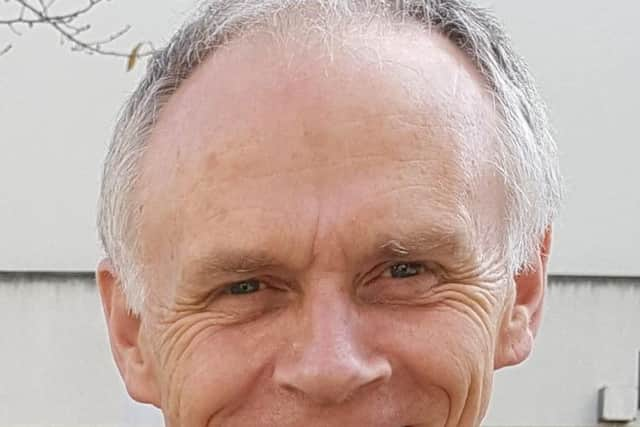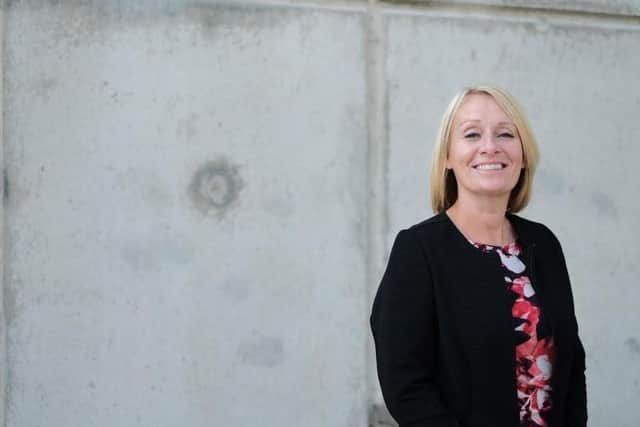Telegraph Voices: What are the pressures facing schools in 2018?


Ian Read, headteacher, Watercliffe Meadow Community Primary.
"We are currently facing a ‘perfect storm’ of pressures in our schools and in Sheffield this is compounded by the fact we are very poorly funded compared to similar sized metropolitan areas across the country.


Advertisement
Hide AdAdvertisement
Hide Ad"You may have heard talk of the new National Funding Formula and how it will redress the balance of a ‘London-centric’ funding model.
"In reality, it will do little to offset our already decreasing budgets and while some schools in Sheffield will gain slightly under this new formula, many will be worse off.
"Decreased budgets are however, only part of the story.
"A systematic reduction in local authority support also means that we as schools are having to do (much) more with less.


"My role as headteacher and the things that we now pick up as our daily business are almost unrecogniseable compared to five years ago.
Advertisement
Hide AdAdvertisement
Hide Ad"If you add in to this mix high stakes accountability that puts huge additional pressure on school staff, and then consequently children and families, and a growing mental health crisis that seems to be escalating at an alarming rate, there is little wonder that it feels like we are at breaking point.
"On top of all this, we are operating in a fragmented academy driven system with a recruitment and retention crisis on our hands.
"Yet despite this perfect storm of pressures, we are surviving and in some ways even thriving. Why? As teachers and leaders in schools, few of us are driven by money or good working conditions.


"We do this job because we wanted to make a difference to the lives of the children and families that we serve.
Advertisement
Hide AdAdvertisement
Hide Ad"That’s what motivates me to get up every morning and do what I believe is right for our school community despite all that’s going on around us."
Libby Nicholas, chief executive, Astrea Academy Trust.
The challenges we face are clear for all to see – even influencing the political agenda.


"Top of the list comes money. At Astrea our central mission is to provide an education that 'inspires beyond measure', and it’s our job to ensure that isn’t compromised, even in these challenging financial times.
"In many ways, being part of an academy trust can help enormously in the face of the cold financial climate.
Advertisement
Hide AdAdvertisement
Hide Ad"Purely down to our scale, we are able to leverage our buying power – in the same way that if you buy bulk at the supermarket and make a huge saving, so too can we do the same with classroom resources.
"But it doesn’t stop there – as a family of schools, we have completely reinvented how our academies use supply teachers.
"Across the country, millions of pounds are being spent every day on supply agencies, with schools paying through the nose for cover teachers.
"With big question marks over the quality of supply teachers, this is tantamount to pouring money down the drain.


Advertisement
Hide AdAdvertisement
Hide Ad"We have put a stop to that at Astrea, and instead created our own internal pool of talented teachers who can be deployed to any of our schools to cover sickness, or school trips, and at a fraction of the cost.
"We estimate huge savings every year- all of which goes back into the classroom to support our focus on 'inspiring beyond measure'.
"We’ve also been able to pay our teachers more as a result – giving them a two per cent pay rise, instead of the one per cent as prescribed by Government, sending a message loud and clear about just how much we value them.
"With the funding challenges comes an even greater necessity to create strategic partnerships to share capacity and resources across schools.
Advertisement
Hide AdAdvertisement
Hide Ad"And with the diminishing role of local councils in running schools, this becomes all the more important.
"As part of the Northern Alliance, Astrea is working closely with four other northern trusts and with the challenges that we are all facing in 2018, we want to see even more of this type of genuinely collaborative working."
Toby Mallinson, Sheffield NEU (NUT Section) joint division secretary.
"Schools are facing immense pressures. Principle ones are financial pressures combined with the system of testing, league tables and inspections.
Advertisement
Hide AdAdvertisement
Hide Ad"But both of these pressures are worsened significantly by the breakup of any meaningful or coherent education system through the expensive academies programme.
"The effect of these pressures is the crisis in recruitment and retention of front line staff and a loss of creativity and quality in the child’s experience of education.
"Firstly, the financial strain; due to austerity policies, schools (like all public services) have had their budgets continuously cut in real terms for many years. This is set to continue. The result is larger class sizes, a narrowed curriculum and more workload on fewer staff.
"Secondly, the system of league tables; this feeds a blame culture which benefits no-one. It leads to extensive ‘teaching to the test’ and a view that if it cannot be tested it is not worth teaching. It effectively smothers teaching of the ‘soft skills’ such as debating, (speaking and listening) and all of the creative subjects which build well rounded, creative people able to cope with our fast changing world.
Advertisement
Hide AdAdvertisement
Hide Ad"We need a system with local and nationwide structures to share and build good practice across all schools. Not one where a school is only as good as last years’ results.
"Finally, the academies programme is a hugely expensive move away from local democratic control of schools.
"Academy chain chief executives are often paid inflated salaries. They typically employ far more managers and administrative staff to run out sourced contracts for all the services a school needs. It results in a system with little financial accountability, at a huge financial cost and with no educational benefit.
"We need to rebuild, refocus and invest in a coherent national school system that puts support for teachers and support staff first.
Advertisement
Hide AdAdvertisement
Hide Ad"It should focus on making their working environment, training and professional development the best in the world so that they can deliver an inspirational education to all children.
"We do need accountability. However it needs to be led by experienced experts sharing good practice based on evidence, not political whims."
Paul Stockley, headteacher Bradway Primary School.
"2018 is likely to be a particularly challenging year for Sheffield schools as the relentless pace of change continues in a context of tight budgets, and ever more challenging expectations.
"Pressure points include the inclusion and the exclusion of pupils, teacher recruitment and retention, mental health and wellbeing, Special Educational Needs (SEN), and the potential fragmentation of the educational landscape as more academies emerge.
Advertisement
Hide AdAdvertisement
Hide Ad"For many schools, insufficient funding is the biggest challenge. Indeed Sheffield is one of the worst funded cities for education and after years of austerity there is little left to cut except for staff. Consequently in 2018 there are likely to be redundancies and a reduction in services at some schools.
"Another pressure is that the number of pupils with complex needs, including children with behavioural and mental health difficulties, is growing rapidly. Special schools do not have enough places so more are entering mainstream schools.
"Despite successes in many of our excellent, inclusive schools, some of these children are unnecessarily excluded because a few schools cannot, or will not, provide adequate provision for their needs.
"To put it crudely, pupils with special needs are less likely to score well in tests and lower test results can cost schools their reputation and leaders their jobs.
Advertisement
Hide AdAdvertisement
Hide Ad"A symptom emerging from this culture is a dramatic rise in permanent exclusions, both in Sheffield and at a national level. This pressure has also led to a narrowing of the curriculum in some schools, with less creative subjects being taught and more ‘academic’ subjects on offer as schools do their utmost to achieve their targets.
"Unfortunately this type of academic curriculum does not necessarily suit the needs of children struggling to remain in school.
"We understand the problems in Sheffield; 2018 is the year when we need some creative solutions."
Vicky Simcock, headteacher, Parkwood Academy.
The biggest problems facing schools in 2018 is the national crisis in terms of staff recruitment and retention.
Advertisement
Hide AdAdvertisement
Hide Ad"Teachers work 12-13 hour days- planning, marking and moderating work, data inputting as well as teaching their timetabled lessons.
"The demands and pressures in terms of Ofsted, the DfE, the new terminal exams with the constantly changing goal posts, Progress 8 versus Attainment 8 make the job not just for school leaders but for all staff in schools incredibly challenging.
"Staff recruitment and retention is therefore a major issue, not just in core subjects such as maths, English and science but even in subjects such as DT where this year the government’s own target in terms of recruitment was missed by over 50 per cent.
"Teachers choose to teach, it is a vocation thus this shortage of new staff combined with the exodus of staff exiting the profession is a major concern.
Advertisement
Hide AdAdvertisement
Hide Ad"Another issue is that schools are increasingly having to provide part time youth workers, social workers, community liaison officers, mental health first aiders to support the students and the families they serve.
"Social care cuts mean that schools like Parkwood now try to fill this vacuum internally and do so via in-house staff such as the safeguarding and welfare team, including 15 staff trained as mental health first aiders and a school counsellor.
"Finally traditionally teachers taught lessons that would grow subject knowledge and ignite enthusiasm and interest, harnessing and developing passion and a desire to learn, to grow a child’s mind and intellect.
"Unfortunately now in schools teachers are increasingly being forced to deliver lessons that will ensure exam success, to teach to the exam in order to allow students the expertise to gain the necessary qualifications, be that age related expectations in Y6 or grade 4/5 and above in Y11.
"This shift comes at a cost. curriculums are being streamlined and shaped in line with the government agenda and performance measures not always in the best interest of our children."